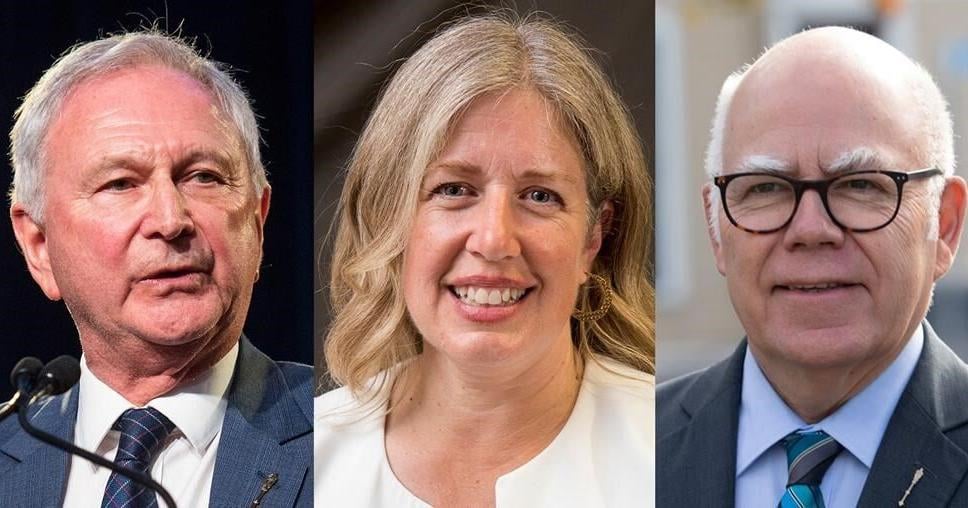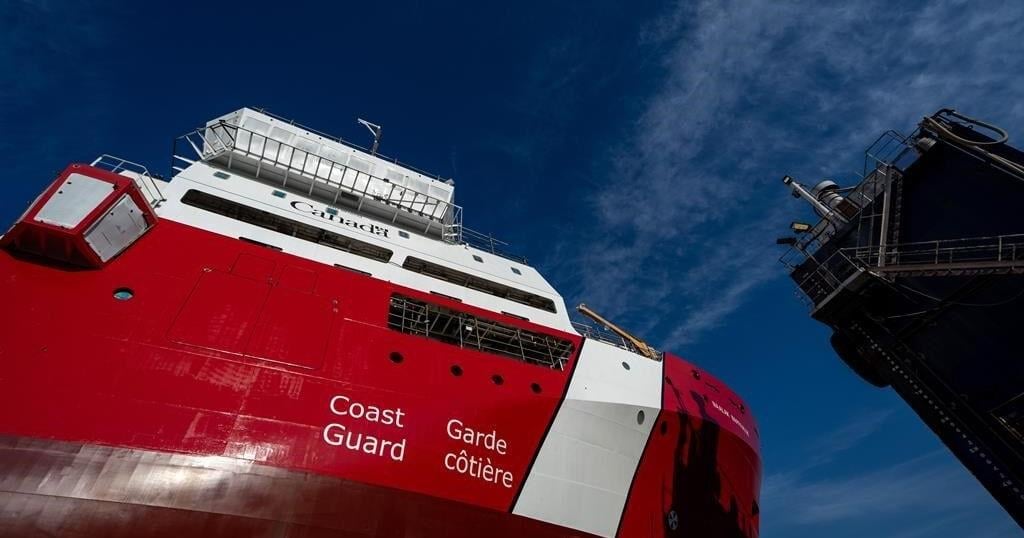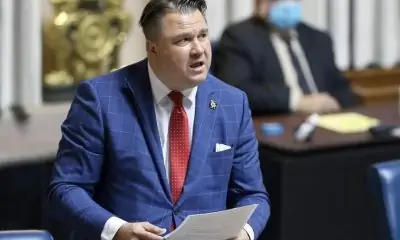- Summary
Economy
Global economy approaching a recession, central banks unchained: Reuters poll – Reuters
BENGALURU, Oct 26 (Reuters) – The global economy is approaching a recession as economists polled by Reuters once again cut growth forecasts for key economies while central banks keep raising interest rates to bring down persistently-high inflation.
One bright spot is that most major economies already in a recession or heading into one are starting with relatively low unemployment compared with previous downturns. Indeed the latest poll expects the smallest gap between growth rates and joblessness in at least four decades.
But while that might deaden the intensity of recessions – most respondents say it will be short and shallow in key economies – that may also keep inflation elevated for longer than most currently expect.
A majority of the top global central banks are over two-thirds of the way to the expected terminal interest rate, but with inflation still much higher than their mandates, the risk is those rate expectations are too low.
After being late to call the inflation problem, global central banks have spent most of this year frontloading rate hikes to catch up. Most economists and central banks are of the view there will be little work left to do next year.
Michael Every, global strategist at Rabobank, said “risk of a global recession” is what everyone’s talking about and has become mainstream in forecasts. “I think that’s pretty much a no-brainer when you look at the trend in all the key economies.”
Looking at the low jobless rate is problematic, Every said, because it is a lagging indicator and “the longer it stays stronger the more central banks will feel that they can continue to hike rates.”

Of the 22 central banks polled this time, only six were expected to hit their inflation targets by the end of next year. That was a downgrade from July surveys, where two-thirds of 18 were expected to hit their respective targets by then.
Analysts at Deutsche Bank wrote: “…history never repeats exactly, but since inflation forecasting has generally been so poor over the last 18 months, it’s worth us asking what normally happens when inflation breaches these thresholds. The answer is that it’s normally quite sticky.”
In the meantime global equity and bond markets are in disarray while the U.S. dollar is at a multi-decade peak in foreign exchange markets based on U.S. rate expectations.
A strong 70% majority of economists, 179 of 257, said chances of a sharp rise in unemployment over the coming year were low to very low, underscoring how widespread the view is among forecasters that it won’t be a devastating recession.
Global growth is forecast to slow to 2.3% in 2023 from an expected 2.9% this year, followed by a rebound to 3.0% in 2024, according to Reuters polls of economists covering 47 key economies taken Sept. 26-Oct. 25.
Those were all downgrades from polls taken in July.

Over 70% of economists, 173 of 242, said the cost of living crisis in the economies they cover would worsen over the next six months. The remaining 64 expected it to improve.
While the inflation cycle is global in nature, made worse by a sudden surge in energy prices after Russia invaded Ukraine on Feb. 24, much will depend on how far the U.S. Federal Reserve was likely to push rates higher.
The Fed is expected to go for a fourth consecutive 75 basis points interest rate hike on Nov. 2, and economists say it shouldn’t pause until inflation falls to around half its current level.
China, the world’s second largest economy, was expected to grow 3.2% in 2022, far below the official target of around 5.5% and also well below pre-pandemic growth rates.
Excluding the meagre 2.2% expansion after the initial COVID-19 hit in 2020, that would be the worst performance since 1976.
India’s economy was also forecast to grow well below its potential over the next two years with medians showing 6.9% growth in the 2022-23 fiscal year and 6.1% next year.
The euro zone economy was expected to grow 3.0% this year but flatline in 2023 before expanding 1.5% in 2024.
(For other stories from the Reuters global economic poll:)
Reporting by Hari Kishan; Polling, analysis and reporting by the Reuters Polls team in Bengaluru and bureaus in Buenos Aires, Johannesburg, London, Istanbul, Shanghai, and Tokyo; editing by Jonathan Oatis
Our Standards: The Thomson Reuters Trust Principles.
Continue Reading
Economy
Construction wraps on indoor supervised site for people who inhale drugs in Vancouver

VANCOUVER – Supervised injection sites are saving the lives of drug users everyday, but the same support is not being offered to people who inhale illicit drugs, the head of the BC Centre for Excellence in HIV/AIDS says.
Dr. Julio Montaner said the construction of Vancouver’s first indoor supervised site for people who inhale drugs comes as the percentage of people who die from smoking drugs continues to climb.
The location in the Downtown Eastside at the Hope to Health Research and Innovation Centre was unveiled Wednesday after construction was complete, and Montaner said people could start using the specialized rooms in a matter of weeks after final approvals from the city and federal government.
“If we don’t create mechanisms for these individuals to be able to use safely and engage with the medical system, and generate points of entry into the medical system, we will never be able to solve the problem,” he said.
“Now, I’m not here to tell you that we will fix it tomorrow, but denying it or ignoring it, or throw it under the bus, or under the carpet is no way to fix it, so we need to take proactive action.”
Nearly two-thirds of overdose deaths in British Columbia in 2023 came after smoking illicit drugs, yet only 40 per cent of supervised consumption sites in the province offer a safe place to smoke, often outdoors, in a tent.
The centre has been running a supervised injection site for years which sees more than a thousand people monthly and last month resuscitated five people who were overdosing.
The new facilities offer indoor, individual, negative-pressure rooms that allow fresh air to circulate and can clear out smoke in 30 to 60 seconds while users are monitored by trained nurses.
Advocates calling for more supervised inhalation sites have previously said the rules for setting up sites are overly complicated at a time when the province is facing an overdose crisis.
More than 15,000 people have died of overdoses since the public health emergency was declared in B.C. in April 2016.
Kate Salters, a senior researcher at the centre, said they worked with mechanical and chemical engineers to make sure the site is up to code and abidies by the highest standard of occupational health and safety.
“This is just another tool in our tool box to make sure that we’re offering life-saving services to those who are using drugs,” she said.
Montaner acknowledged the process to get the site up and running took “an inordinate amount of time,” but said the centre worked hard to follow all regulations.
“We feel that doing this right, with appropriate scientific background, in a medically supervised environment, etc, etc, allows us to derive the data that ultimately will be sufficiently convincing for not just our leaders, but also the leaders across the country and across the world, to embrace the strategies that we are trying to develop.” he said.
Montaner said building the facility was possible thanks to a single $4-million donation from a longtime supporter.
Construction finished with less than a week before the launch of the next provincial election campaign and within a year of the next federal election.
Montaner said he is concerned about “some of the things that have been said publicly by some of the political leaders in the province and in the country.”
“We want to bring awareness to the people that this is a serious undertaking. This is a very massive investment, and we need to protect it for the benefit of people who are unfortunately drug dependent.” he said.
This report by The Canadian Press was first published Sept. 18, 2024.
The Canadian Press. All rights reserved.
Economy
N.B. election: Parties’ answers on treaty rights, taxes, Indigenous participation

FREDERICTON – The six chiefs of the Wolastoqey Nation in New Brunswick distributed a survey on Indigenous issues to political parties ahead of the provincial election, which is scheduled to kick off Thursday. Here are some of the answers from the Progressive Conservative, Liberal and Green parties.
Q: How does your party plan to demonstrate a renewed commitment to recognizing our joint treaty responsibilities and acknowledging that the lands and waters of this territory remain unceded?
Progressive Conservative: The party respectfully disagrees with the assertion that land title has been unceded. This is a legal question that has not been determined by the courts.
Liberal: When we form government, the first conversations the premier-designate will have is with First Nations leaders. We will publicly and explicitly acknowledge your treaty rights, and our joint responsibility as treaty people.
Green: The Green Party acknowledges that New Brunswick is situated on the unceded and unsurrendered territories of the Wolastoqiyik, Mi’kmaq and Peskotomuhkati peoples, covered by the Treaties of Peace and Friendship. Our party is committed to establishing true nation-to-nation relationships with First Nations, grounded in mutual respect and co-operation as the treaties intended.
Q: How does your party propose to approach the issue of provincial tax agreements with First Nations?
Progressive Conservative: The government of New Brunswick operates in a balanced and fair manner with all organizations, institutions and local governments that represent the citizens of this province, including First Nations. Therefore, we cannot offer tax agreements that do not demonstrate a benefit to all citizens.
Liberal: Recent discussions with First Nations chiefs shed light on the gaps that existed in the previous provincial tax agreements with First Nations. Our party is committed to negotiating and establishing new tax agreements with First Nations that address the local needs and priorities and ensure all parties have a fair deal.
Green: The Green Party is committed to fostering a respectful relationship with First Nations in New Brunswick and strongly opposes Premier Blaine Higgs’s decision to end tax-sharing agreements. We believe reinstating these agreements is crucial for supporting the economic development and job creation in First Nation communities.
Q: How will your party ensure more meaningful participation of Indigenous communities in provincial land use and resource management decision-making?
Progressive Conservative: The government of New Brunswick has invested significant resources in developing a robust duty to consult and engagement process. We are interested in fully involving First Nations in the development of natural resources, including natural gas development. We believe that the development of natural gas is better for the environment — because it allows for the shutdown of coal-fired power plants all over the globe — and it allows for a meaningful step along the path to reconciliation.
Liberal: Our party is focused on building strong relations with First Nations and their representatives based on mutual respect and a nation-to-nation relationship, with a shared understanding of treaty obligations and a recognition of your rights. This includes having First Nations at the table and engaged on all files, including land-use and resource management.
Green: We will develop a new Crown lands management framework with First Nations, focusing on shared management that respects the Peace and Friendship Treaties. We will enhance consultation by developing parameters for meaningful consultation with First Nations that will include a dispute resolution mechanism, so the courts become the last resort, not the default in the face of disagreements.
This report by The Canadian Press was first published Sept. 18, 2024.
The Canadian Press. All rights reserved.
Economy
Canadian Coast Guard crew member lost at sea off Newfoundland

ST. JOHN’S, N.L. – A crew member of a Canadian Coast Guard ship has been lost at sea off southern Newfoundland.
The agency said in a release Wednesday that an extensive search and rescue effort for the man was ended Tuesday evening.
He was reported missing on Monday morning when the CCGS Vincent Massey arrived in St. John’s, N.L.
The coast guard says there was an “immediate” search on the vessel for the crew member and when he wasn’t located the sea and air search began.
Wednesday’s announcement said the agency was “devastated to confirm” the crew member had been lost at sea, adding that decisions to end searches are “never taken lightly.”
The coast guard says the employee was last seen on board Sunday evening as the vessel sailed along the northeast coast of Newfoundland.
Spokeswoman Kariane Charron says no other details are being provided at this time and that the RCMP will be investigating the matter as a missing person case.
This report by The Canadian Press was first published Sept. 18, 2024.
The Canadian Press. All rights reserved.
-

 News3 hours ago
News3 hours agoNurse-patient ratios at B.C. hospitals set to expand in fall, says health minister
-

 News3 hours ago
News3 hours agoSleep Country shareholders approve sale to Fairfax Financial
-

 Economy3 hours ago
Economy3 hours agoN.B. election: Parties’ answers on treaty rights, taxes, Indigenous participation
-

 News3 hours ago
News3 hours agoAlberta Premier Smith aims to help fund private school construction
-

 News3 hours ago
News3 hours agoHealth Minister Mark Holland appeals to Senate not to amend pharmacare bill
-

 News3 hours ago
News3 hours agoSecond-half goals lift defending MLS champion Columbus past Toronto FC
-

 News3 hours ago
News3 hours agoManitoba NDP caucus chair says turfed backbencher was disrespectful, deceitful
-

 Economy3 hours ago
Economy3 hours agoConstruction wraps on indoor supervised site for people who inhale drugs in Vancouver






















